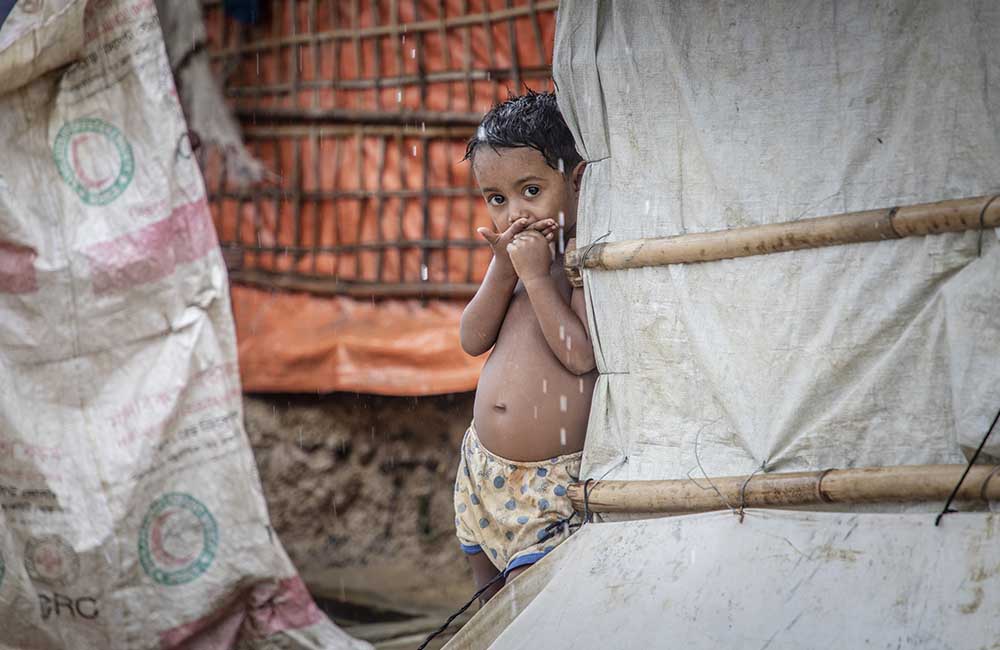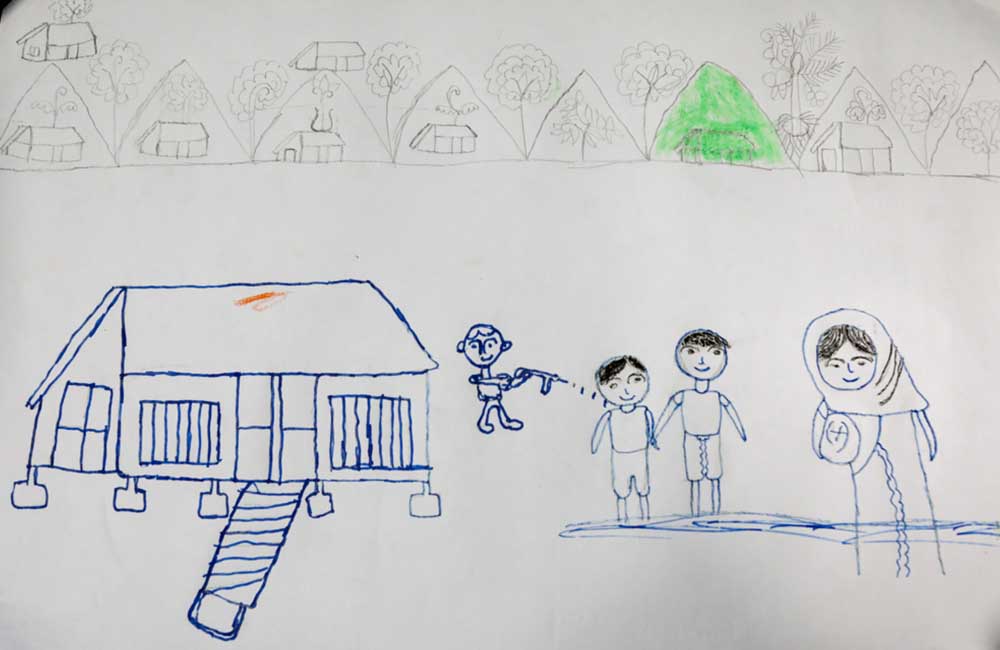The camps shrouded in gloom
More than 128,000 people, including nearly 70,000 children, have been confined to displacement camps in the central park of Rakhine state since 2012. The conditions of the camps are appalling; they were not designed to accommodate people for such a length of time. Squalid and overcrowded, with limited opportunities to make a living, there is limited access to services, including healthcare and quality education.
Adding to this misery, Myanmar impedes aid delivery from international Non-Government Organisations to many of the camps and blocks most international observers from visiting. It is this blackout on information which is creating fear that people are suffering in darkness.

Nasim*, four, watches from his house as the monsoon rains pour down over a refugee camp
for Rohingya people in Cox’s Bazar, Bangladesh.
Bringing the military out of the shadows
The government and military of Myanmar have repeatedly rejected the evidence presented by impartial investigators, denied responsibility for the commission of crimes against humanity, blocked independent and credible investigations, and impeded international human rights mechanisms.
Journalists investigating the abuses have been imprisoned.
We believe a wide-ranging blackout has been imposed in Myanmar:
- a blackout on the internet, creating fear that more crimes are being committed under the cover of darkness;
- a blackout on aid, preventing humanitarian agencies reaching children who need it most;
- a blackout preventing access to impartial investigators who are trying to establish responsibility for the horrific crimes against children.

Drawing by Rohida*, 16, a Rohingya refugee who fled from Myanmar to Bangladesh.
Drawing shows her experience of being forced to leave Myanmar.
Accountability is essential
Perpetrators of violations, whether in Myanmar or elsewhere in the world, will be emboldened if the international community does not make it absolutely clear that crimes of this magnitude will never be tolerated.
Australia can use its influence in international forums like ASEAN and the UN Human Rights Council to demand accountability, which could ultimately lead to a referral by the UN Security Council of members of the Myanmar military to the International Criminal Court, where they will stand trial for their crimes.
*Name changed to protect identity.